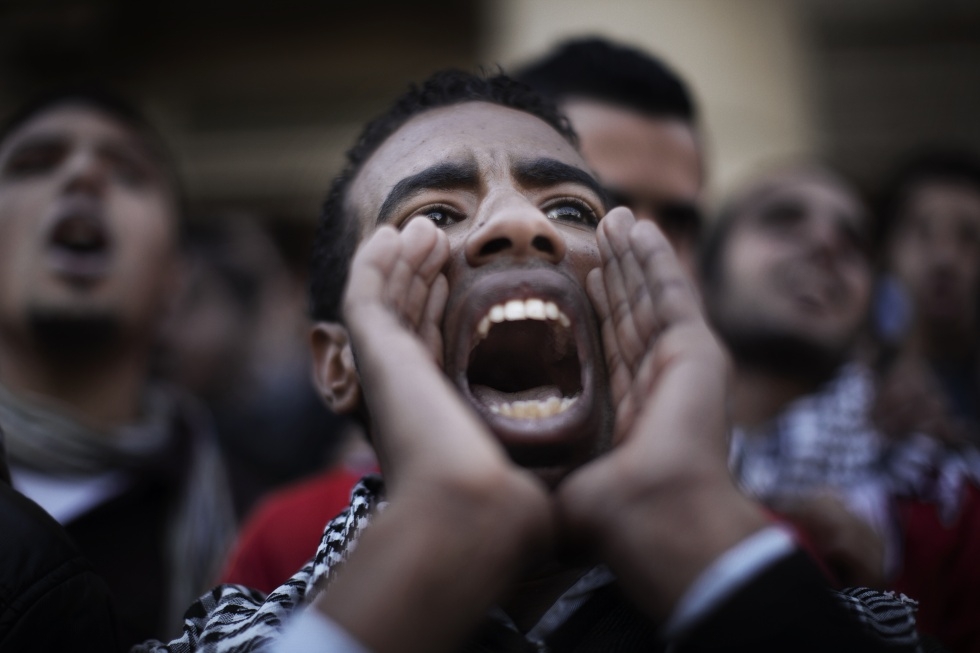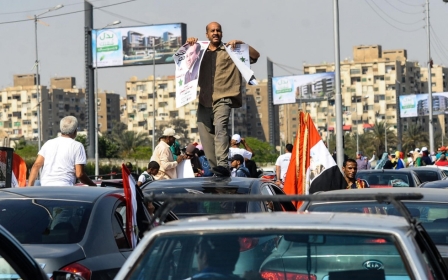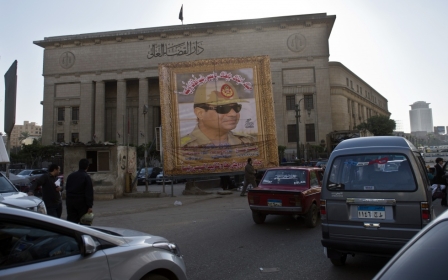As Egypt votes, pro-Morsi town testifies to brutal divide

As Egyptians vote for a president Monday, a gutted police building in the Muslim Brotherhood stronghold of Kerdasa stands as a monument to the brutal divide left by the overthrow of Egypt's Islamist leader.
The frontrunner is Abdel Fattah al-Sisi, the now retired army chief who ousted elected president Mohamed Morsi last July, in what many here call a bloody military coup.
Portraits of Sisi abound across the country, but they are mostly absent in this town southwest of Cairo, where just a trickle of voters turned out on Monday.
Instead, defiant residents have posted pictures of Morsi, describing him as "the legitimate president."
Kerdasa took its place in history on 14 August last year, when a mob attacked a police station and killed 13 officers, mutilating their corpses. The attack was reportedly revenge for the deaths of some 700 pro-Morsi protesters in Cairo that day.
As voting in the two-day election began, there were no festivities or ulalating women here, in contrast to polling stations elsewhere in Egypt.
Only three were open to voters, on the outskirts of the town, which lies 35 kilometres (25 miles) southwest from the capital.
"It's to avoid a clash with rioters," said a police officer guarding the polling station in a school, itself decorated with graffiti that said "down with military rule."
"Sisi killed youths and now he is grabbing power. This is the biggest evidence that (Morsi's ouster) was a coup," said Mohamed Gamal, a Muslim Brotherhood member who has since spent five months in detention.
Morsi's Brotherhood has been designated as a terrorist group and its leaders, including the deposed president, are in jail.
Sisi is expected to trounce his rival, leftist Hamdeen Sabbahi, riding a wave of popularity for ousting the divisive Morsi almost a year after his election. Many in the country want to move on, with a strongman at the helm to restore stability in the most populous Arab country.
But not in Kerdasa, where run-down buildings are grimly festooned withstencilled pictures of pro-Morsi "martyrs" killed by the police in clashes.
"After all this blood spilled in Egypt and my city, there can't be participation in this election," said Mahmud al-Taghish, 23.
On the city's outskirts, only several dozen men and women lined up to vote.
"We support Sisi because he has no particular ideology, only the country's best interest," said Mohamed Farag, an activist with the Salafist Nour party.
The party sided with Sisi when he ousted Morsi, after millions of Egyptians took to the streets demanding his removal from power.
Earlier this month, the party announced its support for Sisi. Just days later during a pre-recorded television interview, Sisi said he was not bound by any obligations to protect religiously-affiliated political parties. Since then, the Muslim Brotherhood has accused Nour of "betraying its Islamist roots".
Following the 14 August attack, Kerdasa appears to have been mostly abandoned by police.
They swooped in on the city a month later to flush out wanted residents in an operation that left a police general dead.
But with the town still smouldering, the police have not tried to set up new headquarters, only conducting the occasional arrest operation, or sending in special forces to confront a protest.
Middle East Eye propose une couverture et une analyse indépendantes et incomparables du Moyen-Orient, de l’Afrique du Nord et d’autres régions du monde. Pour en savoir plus sur la reprise de ce contenu et les frais qui s’appliquent, veuillez remplir ce formulaire [en anglais]. Pour en savoir plus sur MEE, cliquez ici [en anglais].




